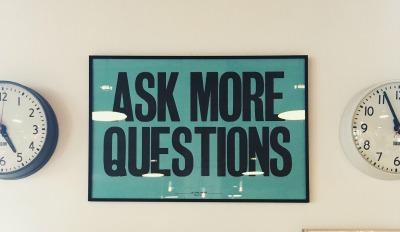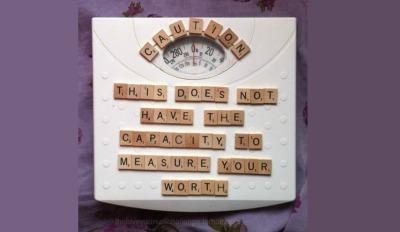Posts by Dr. Karen Finn
Bi In Hetero Marriage: Am I Cheating If I Have Homosexual Sex?
The answer is definitely … it depends.
Outside of the legal definition, marriage is a commitment that two people make to each other. For most couples the commitment includes monogamy.
But what happens if a bisexual person enters into a marriage with a heterosexual person and still wants to have homosexual sex? Will they be cheating if they do?
If you’re bisexual and in this situation, you know this is a complicated question to answer. Yet by your willingness to answer it you’re doing a couple of great things. First, you’re honoring yourself by being aware of your needs (and your sexual identity). Second, you’re displaying love and respect for both your spouse and your marriage.
Getting back to answering the question … The only way to know if having sex with a same sex partner is cheating on your spouse is to look at your specific situation.
Situation 1: Your spouse knew you were bisexual and wanted to continue having homosexual sex when you married.
Since your spouse entered into the union knowing your sexual orientation and that you still wanted to fulfill your desire for sex with a same sex partner, you probably figured out a way to respectfully communicate about when you would do so.
If you communicate as you agreed, having homosexual sex while married to your heterosexual spouse is not cheating.
However, if you do not communicate with your spouse as you agreed, then you are cheating.
Situation 2: Your spouse knew you were bisexual but didn’t know you wanted to continue having homosexual sex after the marriage.
Ideally, you will talk with your spouse about your need for sex with a same sex partner before you engage in it. Hopefully, they understand or at least appreciate your situation and come to some kind of loving agreement with you about how you can have your needs met. Maybe they’ll even be up for a threesome so both of you can enjoy the experience.
If you respectfully communicate with your spouse and together come to agreement about how you can get your needs met and if you follow through with that agreement, then you are not cheating.
However, if you either don’t let your spouse know about your needs or don’t adhere to the agreement you made, then you are cheating.
Situation 3: Your spouse didn’t know you were bisexual before you married OR you discovered you were bisexual after your marriage.
For many this is the toughest situation because it means sharing a part of you with your spouse that you’ve never shared before. But it’s vitally important that you do because if you don’t you’re living a lie and forcing your spouse to live one too.
As uncomfortable as the thought of this discussion might be, you can have it in a way that’s loving and respectful to both of you. That is if you plan for it and expect for it to take some time for your spouse to fully accept it.
Once your spouse has accepted it (or at least come to terms with it), you’ll have an easier time telling them about your need for sex with a same sex partner. You might be surprised by their willingness to experience your newly discovered sexuality (at least it’s new to them) with you by having a threesome. Or they could even suggest an open marriage or polyamory.
After you’ve had this difficult conversation with your spouse and agreed on how you can respectfully meet your needs, then you are not cheating.
However, if you don’t have this conversation with your mate or don’t adhere to the communication you agreed to, then you are cheating.
As complicated as your situation is, there is a basic truth about determining whether or not having homosexual sex is cheating or not. And that truth is if you’re betraying your mate’s expectations about the type of contact you have with another person, then you’re cheating.
Having open dialog with your spouse about your needs, agreeing on how you can have those needs met and then adhering to that agreement is the only way that having same sex sex within your heterosexual marriage is not cheating.
I’m Dr. Karen Finn, a divorce coach and advisor who believes that choosing divorce is a last resort. You can join my newsletter list for free weekly advice. If you’re interested in taking the first step toward working with me, you can schedule an introductory private coaching session.
Looking for more help to make your marriage better? You’ll find what you’re looking for in Surviving Infidelity
This article originally appeared at DivorceForce.
Dating – It Is Not Always About Finding That Perfect Person
There are other truly amazing reasons to date besides getting hitched again.
I can’t tell you how many people (especially men) I’ve talked to over the years who begin dating after divorce for the sole purpose of finding “the one.” You know, the person who really will love them for the rest of their lives (unlike their ex who said they would, but didn’t).
The problem is that when recently divorced people approach dating from this perspective they’re setting themselves up for another heartbreak. (Yes, this is the voice of personal experience and of observation.) And, no, it’s not 100% true all of the time, but it’s more true than not.
The reason why starting to date with the goal of finding the perfect person for you is so problematic is because you’re probably not completely you yet.
A bad marriage and divorce takes a toll on you. Over the years you adapted to the situation. And by adapting you’ve probably given up little pieces of yourself here and there.
On top of that most divorces are incredibly painful to go through. Because of the pain, it’s natural to gravitate to people who are caring and kind without much regard for the rest of their personality.
Finally, when your purpose for dating is just to find your next Mr./Mrs. you’re short-changing yourself. You’re not rediscovering your innate strength to stand on your own two feet and you’re allowing yourself to become (remain?) co-dependent.
If dating after divorce isn’t just about finding the perfect person for you, why bother dating?
None of this means you shouldn’t date (when you’re ready). It just means you need a different perspective.
Here are four different reasons to date besides finding “the one”:
- To Have Fun
Getting divorced sucks. There’s nothing fun about the process of divvying stuff up, ripping apart your family and crash courses in both family law and finance. Oh and then there’s the whole part about feeling like crap. Going out and having fun with people who find you attractive is a terrific reason to date!
- To Interact With Another Adult
For a lot of people parenting and work consume their lives post-divorce. And that means you’re surrounded by people who need something from you which is especially draining. Getting out and conversing with another adult who finds you attractive is another wonderful reason to date.
- To Have Your Sexual Needs Met
Look I know you’ve got the whole self-gratification thing down and it works – especially in a pinch. But seriously, you and I both know it’s not nearly as much fun as having sex with someone. And so, yeah, dating to find sexual partners (and practice safe sex) really works as another reason to date.
- To Learn About Yourself
So I saved this reason for last because it’s actually the most fulfilling – long-term. I’ve met very, very few people who are 100% themselves before, during and after divorce. Most of us need a bit of time to rediscover who we really are after we shed all of the habits of thought and behavior we’ve developed as we tried to deal with the marriage and divorce. So dating gives you an amazing opportunity to explore things about you. For instance, you’ll have a chance to learn what you do and don’t like about the various people you meet. You’ll also learn about what you do and don’t like about your own behavior when you’re spending time with all these people.The real bonus here is that by allowing yourself the chance to interact with different people you’ll get more clear about who really will be the perfect partner for you when you are finally ready to settle down.
Hopefully, these other reasons to date are at least as exciting to you as finding the perfect partner. As you look at this list I wish for you to see that none of the items on it preclude finding “the one.” In fact, you could argue that they’re all part of it. The thing is that if you allow yourself to ease up on the drive to find the perfect partner now, you’ll have a better shot at find them when you’re truly ready.
I’m Dr. Karen Finn, a divorce coach and advisor helping people just like you who want to create a great life for themselves post-divorce. You can join my anonymous newsletter list for free weekly advice. If you’re interested in taking the first step toward working with me as your personal coach, you can schedule an introductory private coaching session.
(H3) Looking for more support and ideas for healing from divorce? You’ll find what you’re looking for in Life After Divorce.
This article originally appeared at DivorceForce.
Are Negative Thoughts Common After Divorce?
The help you need for understanding your post-divorce negative thoughts and how to stop them.
Getting through all the drama, trauma and legalities of divorce is positively exhausting. It makes sense that you would wrestle with negative thoughts while you’re going through divorce.
After all, before your divorce was final it was perfectly normal to struggle with coming to terms with the end of your marriage, your (and your kids’) tumultuous emotions, all the legal stuff, your drastically altered financial situation, and figuring out how to live your life now that you’re single.
You’d think that after the ink dried on your decree that you’d feel better. But you don’t – at least not completely. Sure, some things are easier. Yet you’re still plagued by horribly negative thoughts.
Thoughts like:
- I’m going to be alone for the rest of my life.
- I’m a failure.
- How could s/he give up on us so easily?
- Why has s/he moved on already?
- It’s so unfair that my life has to change like this.
- I know this divorce has destroyed my kids’ chances of ever being happy.
And these critical, fearful, worrisome, angry and despairing thoughts worry you. You believe that you should be over it all by now. And with that belief, your fears and worries intensify because you’re clearly not over it.
What you need to know is that negative thoughts are common – especially after divorce.
That’s right. Negative thoughts are common – period. They’re common not just after divorce, but in general.
Why are negative thoughts common? Because we evolved from people who needed to constantly scan their environments looking for problems to fix so they (and their families) could stay safe. And that’s why we do the same today. In fact, it’s estimated that 80% of everyone’s thoughts contain at least some negative content.
What makes negative thoughts more prevalent after divorce? Since divorce is so stressful, it’s natural to feel more anxiety while you’re dealing with divorce than at other times. And simply because the decree is a done deal doesn’t mean that your stress will disappear. What’s problematic about continuing to feel anxious and stressed out is that stress and anxiety intensify negative views.
What can you do about your pessimistic perceptions? The best way to stop your negative notions is a two-step process.
First, accept that it’s natural to have them. As you become more accepting of them, you’ll begin to feel less anxious about having negative thoughts. And as you feel less anxious, you’ll stop having as many of the unwanted thoughts.
Second, identify and change the harmful beliefs that are underlying the pessimistic thoughts. (Like that belief that you should be over it all by now when obviously, you’re not.) The longer you hold on to beliefs that perpetuate the possible validity of your negative thoughts, the longer they will plague you.
However, if you do the work necessary to change your beliefs, you’ll find that your negative thoughts are no longer as compelling as they once were. And you’ll be able to let them go as easily as they show up.
Completely getting through divorce is tough. You’ve struggled with and made it through all the obvious changes to your life, but getting through the mental changes that need to occur can be frightening and hard.
But, hopefully, by knowing that negative thoughts are completely normal – especially after divorce – and that you can take some specific steps to start calming your persistent pessimistic views you’ll soon discover that you’re able to put those negative thoughts (along with your marriage) behind you.
I’m Dr. Karen Finn, a divorce coach and personal life coach helping people just like you who are looking for support advice healing after divorce. You can join my newsletter list for free weekly advice. And, if you’re ready, you can take the first step toward working with me as your personal coach by scheduling a private consultation.
Looking for more tips on getting over your divorce? You’ll find what you’re looking for in Healing After Divorce.
Yes, Homosexual Divorce Hurts Too (DUH!)
Even “nice” prejudices cause more harm than good.
I’m sick and tired of all the divisiveness we’re subjected to every day here in the US. Our culture seems to thrive on the us vs. them mentality.
We see it in the way people segregate themselves into groups with a strong loyalty that often transcends logic (often referred to as tribalism). Just a few examples include the rabid nature of our 2-party political system (especially during election time); the way we root for our favorite teams; how we identify not as being Americans, but as a particular type of American (African, Latino, Chinese, etc.); and in our sexuality.
Now don’t get me wrong. I believe having a strong sense of identity is important and that challenge can promote growth. But we go overboard with it when we use our sense of us vs. them to produce barriers that prevent communication or to promote a prejudice – even when that prejudice is “nice”.
One of the “nice” prejudices I’ve repeatedly run across has to do with same-sex divorce.
The right for same-sex couples to marry in every state is still new (it became the law of the land on June 26, 2015). Many same-sex couples have taken advantage of the new law and gotten married. And what happens when people marry? They might “live happily ever after” or they might get divorced.
And here’s where the “nice” prejudice comes in. Many people (including some in the LGBT community) assume that since same-sex couples are so different from heterosexual couples that their divorces must be different too. And not just different, but easier!
Obviously, having easy divorces would be great for those same-sex couples who end their marriages, but this just isn’t true! In fact, it’s often a larger legal nightmare for same-sex couples because of all the inconsistent laws and misinformation that even those who are supposed to be in the know propagate.
Homosexuals who divorce face the same emotional roller-coaster as heterosexuals. They have to face their grief, they have to heal, and they have to rediscover how to be happy again.
One of the most common resources that heterosexual people have access to when they are healing from their divorce is divorce support groups. But homosexuals often don’t feel comfortable or welcome in these divorce support groups because most of the groups meet in churches and/or follow a strict teaching about marriage only being between a man and a woman.
So finding the support they need can be much more difficult for divorcing homosexuals than heterosexuals. (Thank goodness for places like DivorceForce’s communities!)
Divorce takes your life – regardless of your sexual orientation – puts it into blender and spits out this nearly unrecognizable existence. You’re left questioning your identity, your desirability, your ability to trust, your ability to love, your ability to live on your own, your financial status, your relationship with your children, your friendships … In essence you’re left recreating yourself and your place in the world.
Making the assumption that divorce is somehow easier for homosexuals is not only horribly wrong, but horribly hurtful. By making light of the experience of divorce, those going through it are victimized – again.
The whole thing that really pisses me off about this divisiveness – even with its “nice” prejudices – is that it causes us to forget that those people who we categorize as them are people – people with hopes, dreams and feelings just like us.
So yeah, those stereotypes about “them” have got to go and yes, homosexual divorce hurts too – a lot.
I’m Dr. Karen Finn, a divorce and personal life coach helping people just like you who are divorced and ready to get on with their lives. You can join my anonymous newsletter list for free weekly advice. And if you’re interested in taking the first step toward working with me, you can schedule an introductory private coaching session.
Looking for more support and ideas for getting through your divorce? You’ll find what you’re looking for in Dealing With Grief.
This article originally appeared at DivorceForce.
When Co Parenting Is Impossible
Coparenting isn’t always the best choice for raising happy, healthy kids after divorce.
As idyllic as many divorce professionals make coparenting sound for parents who don’t live together, sometimes it’s just impossible to do.
Some reasons co parenting is impossible include:
- A parent is actively abusing alcohol, drugs or another substance
- A parent is incarcerated
- A parent is violent or has threatened violence against an adult, child, pet or property
- One parent has active restraining orders against the other parent
- A parent has an inappropriate sexual behavior or other acting out behavior
- A parent neglects or has abandoned their child (children)
- A parent has a history of frequent, unexpected moves or plans to move out of the area
- A parent is actively alienating their child/children from the other parent
- There’s simply too much friction between the parents to communicate at the level necessary for coparenting.
But just because you can’t enter into a coparenting relationship with your child or children’s other parent, that doesn’t mean that your divorce will destroy your children. What’s most important for your children to adjust well to your divorce is that you adjust well to it because your emotions are contagious.
When coparenting is impossible, you do have other options. You can use parallel parenting or one parent can have sole custody.
Another form of shared parenting is parallel parenting. The biggest difference between coparenting and parallel parenting is the level of communication. Parallel parenting doesn’t require the consistent communication that coparenting does. (Although communication about the health, safety and welfare of the kids is still necessary.)
Parallel parenting benefits the kids when coparenting won’t work because they’re exposed to less parental conflict and they can still have positive relationships with both of their parents.
In order for parallel parenting to work, the parenting plan must be VERY specific so there are no gray areas. This need for specificity along with the changing needs of the children usually leads to frequent modifications of the parenting plan.
But when co parenting is impossible, parallel parenting is a great alternative for both parents to participate in raising their children.
The other option is for one parent to have sole custody. In rare cases, one parent will have sole legal and physical custody of the child or children while the other may have visitation. When sole custody is part of the divorce agreement, it’s more common for one parent to have sole physical custody while both parents share legal custody.
Sole legal custody means that one parent will have full responsibility and right to make major decisions about the child’s or children’s well-being. These decisions include religious and moral development along with educational and healthcare decisions.
Sole physical custody means that the child or children live with one parent with visitation by the other parent – unless the court decides that visitation is not in the best interest of the child or children.
Regardless of the parenting situation, your kids will thrive when they feel safe and deeply loved.
So, is it possible to raise happy, healthy kids after divorce when coparenting is impossible? Absolutely. You’ll just need to put in the extra work in creating a parenting plan that clearly spells out what parenting means now, work through all of your emotional turmoil from the divorce, and LOVE your kids.
I’m Dr. Karen Finn, a divorce coach and advisor helping people just like you who are looking for support advice about co-parenting. You can join my newsletter list for free weekly advice. If you’re interested in taking the first step toward working with me, you can schedule an introductory private coaching session.
Looking for more tips on parenting after divorce? You’ll find what you’re looking for in Coparenting.
Who Does Co-Parenting Benefit?
Co-parenting is not just about the kids.
Co-parenting is a term that most people don’t hear until they’re separating or divorcing. But the truth is that co-parenting is the ideal way to parent regardless of marital status. (Although, ideal doesn’t mean it will work best for you and your situation.) That’s because parents who raise their children this way agree on parenting decisions and choose to put their kids’ needs first.
At first blush, this definition of co-parenting makes it seem like the kids are the only beneficiaries. And there are definitely a lot of benefits for children whose parents co-parent. Among them are:
- Increased sense of security and self-worth. Kids who are co-parented know they can rely on both Mom and Dad to have their best interests at heart and to be consistent in their parenting decisions. This increased sense of security also translates to the children feeling loved and important.
- Decreased stress, anxiety and guilt at each of their homes. When kids know that their parents are working together to raise them, they don’t have to worry about Dad or Mom. They are free to simply be kids.
- Decreased stress and anxiety outside of the home. When children can trust their parents to present a united front to their teachers, coaches and babysitters, they can stop worrying about which of their parents will be interacting with these other important adults in their lives.
- Exposure to respectful problem solving. When Mom and Dad choose to co-parent, they are also choosing to resolve conflicts in a respectful manner. This choice allows children, who are watching their parents carefully for clues on how adults behave, to learn the skill of diplomacy in relationships.
- Improved communication and relationships with both parents. When Dad and Mom share in parenting responsibilities the opportunities for the kids to spend quality time with each of their parents increases dramatically. And this quality time naturally leads to conversations and relationship building.
But co-parenting isn’t just about the kids, it also benefits the parents in some pretty profound ways.
- Breaks from parenting. When a couple chooses to co-parent, then they have confidence that their children’s other parent will be doing a comparable job with the children. This reduces stress and worry and allows the off parent to relax. These breaks are especially important during separation and divorce because they give each parent alone time to heal and have adult time without worrying about their kids.
- Reduced conflicts about parenting. Co-parenting requires that parents get on the same page about how they will raise their children. It also necessitates that the parents will continue to discuss parenting issues as they arise so they can continue being on the same page. This agreement and focus on growing the agreement as their children grow dramatically decreases arguments about parenting even when the parents are separated or divorced.
- Emotional support. When parents choose to co-parent, they will naturally be there for each other when challenges arise in raising their children.
The extended family also benefits when parents choose co-parenting.
Grandparents, aunts, uncles, and cousins also benefit when separated or divorced parents choose co-parenting over parallel parenting because co-parenting eliminates any fears the children may have about spending time with them. And when kids aren’t afraid of how interacting with their extended family might impact their relationships with their parents, they’re free to have rich relationships with their whole family despite their parents’ divorce.
These benefits of co-parenting make it sound like it’s a no-brainer of a choice. But that’s not always the case. Sometimes there are complications that prevent co-parenting from being a viable choice. Issues such as addictions, criminal backgrounds, violence, restraining orders, abuse, neglect and abandonment make co-parenting challenging at best and impossible at worst.
And even if you and your children’s other parent choose co-parenting as the parenting style you’ll use during your separation and divorce, that doesn’t mean it will be easy. You’ll need to develop a means of putting your adult concerns to the side so you can be the co-parents your children, you, their other parent, and your extended families deserve.
I’m Dr. Karen Finn, a divorce coach and advisor helping people just like you who are looking for advice and support about co-parenting. You can join my newsletter list for free weekly advice. If you’re interested in taking the first step toward working with me, you can schedule an introductory private coaching session.
Looking for more co-parenting tips? You’ll find what you’re looking for in Coparenting.
There’s A MAJOR Reason ‘The Divorce Diet’ Sounds Too Good To Be True
I know I’m not your mother, but you HAVE to eat.
Even though my ex-husband and I knew divorcing was the best answer for resolving our issues, actually going through and getting over it was one of the most difficult experiences I have had. The transition was so painful I sometimes wondered if I would ever be happy again. Was I losing my mind?
My misery was so profound that I plunged into the depths of depression and anxiety. I had difficulty sleeping, making decisions and eating. Honestly, I had so much trouble eating that I took the divorce diet to the extreme – I became anorexic.
When I look back at that time in my life, I feel tremendous amounts of compassion for the woman I was then.
She felt so lost, afraid, and out of control of her circumstances that I understand why she chose not to eat. It seemed like an appropriate choice.
There was the constant nausea.
There was the fear of gaining weight (and thereby becoming even more unlovable than she already felt).
There was the fear of spending money on food when there were so many other expenses breathing down her neck.
And then there was the sense of control that came with choosing not to eat.
From my vantage point today, I realize that choosing not to eat, or at times simply forgetting to eat, made getting through my divorce way more difficult than it needed to be.
Food has a direct impact on our ability to think. By starving my body, I was also starving my mind. Not eating exacerbated my difficulty making good decisions and added to the stress and anxiety I experienced every single day.
It was a vicious cycle that many people who divorce get trapped in. The depression, stress and anxiety of divorce are typical appetite killers, and yet, the divorce diet only increases the negative impact of those emotional states.
The good news is that I eventually broke the cycle, and you can too, by following these simple tips:
- Ignore your instincts about eating.
You’ve probably lost your appetite somewhere along the way of your journey through divorce. It’s time to start using some logic.Choose to eat something at regular intervals throughout the day instead of relying on whether you’re feeling hungry. Consider setting daily alarms to remind yourself to eat. - Make eating easy for yourself.
Have simple foods like nuts, fruit, protein/nutrition bars, cans of soup, and frozen meals on hand so finding something to eat is a non-issue.Eating out is another option to make mealtime simple. - Use mealtimes to build – and even rebuild – social connections.
The pain of divorce is terribly isolating and the loneliness is profound. Grabbing a bite is an easy excuse to get together with friends and family so you can connect with them.The connections over meals can have a soothing effect well beyond that offered by the food you consume.
These steps work.
They’re the exact steps I followed to break out of my extreme version of the divorce diet. They’ll work for you too.
It took me a while to get all three steps down and I was far from perfect as I implemented them.
I started with ignoring my instincts about eating and just ate whenever the clock hit certain times. I ate whatever was easy (a bag of chips, a cookie, a protein bar, a banana) without much regard to nutritional value.
After I got used to eating again, I realized that although I felt better, I still felt like crap. I was eating too much junk food and not enough real food. That’s when I started making sure I had simple, healthier food available.
Planning my meals made a HUGE difference.
Eating helped my ability to deal with my divorce. My thoughts were clearer, and with improved clarity, I realized that building connections with my family and friends over mealtimes was a great way to get me out of the house. I learned how to think about other things and not hyper-focus on my problems. Learning how to refocus helped me move on with my life.
Divorce is just a difficult life transition, but you can ease your way through.
Just remember to eat.
I’m Dr. Karen Finn, a divorce and personal life coach helping people just like you who are looking for advice and support in healing after divorce. You can join my newsletter list for free weekly advice. And if you’re interested in taking the first step toward working with me, you can schedule an introductory private coaching session.
Looking for more help getting over your divorce? You’ll find what you’re looking for in Dealing With Grief.
This article originally appeared on YourTango.
Am I The Only One In WTF Mode?
In short, no. Here’s why and what you can do about it.
Getting served with divorce papers out of the blue is without question a WTF moment.
Seriously, how could you ever be prepared for it? Sure your marriage wasn’t perfect, but whose is? And what gives the person who promised they’d love you forever the right to just quit? These and a million other questions are probably running through your mind right now.
Your thoughts are swirling with trying to make sense of the fact that your spouse or soon-to-be-ex wants a divorce and your emotions are just trying to catch up. One minute you’re in shock, the next you’re pissed and then you’re sad. All you’re left with is WTF.
The brutal truth is your spouse has betrayed you – well, at least they’ve betrayed your expectations. We all build our lives on expectations because it’s how we’ve learned to make sense of the world. The problem is we base our expectations on assumptions about other people. And, unfortunately, our assumptions aren’t always correct.
That’s why when an experience challenges or simply proves wrong one of your fundamental assumptions – that your marriage is going to last – your entire world perspective goes into WTF mode. You’re in shock because if this one assumption is wrong, that means others could be too.
It’s way too much to handle all at once. So your brain safeguards you by not letting all the information and pain in at once. And you’re left with your spinning thoughts, feeling overwhelmed, and not sure what to do about anything.
As horrible as it all feels, it’s also perfectly normal. But that doesn’t mean you’re stuck here.
So, WTF can you do about it when you’re feeling like all is lost?
The first thing is to find a way or two to comfort yourself so you can feel safer. (Yes, safer. Because getting served divorce papers has shaken if not entirely broken one of your basic assumptions about life, it’s very normal to experience fear and confusion.)
Some of the things you can try to immediately feel safer include:
- Confiding in supportive family and/or friends about what’s going on. If you don’t have family or friends you want to confide in, the DivorceForce discussion forum is an amazing place to do this. It’s filled with people who really understand what you’re going through because they’ve either been there or they’re going through it themselves right now too.
- Giving yourself a hug. It might sound silly, but it really works. And seriously, what do you have to lose? Hugging increases your sense of security and positive feelings – even if you hug yourself or just imagine it.
- Taking deep calming breaths. Did you know that your breathing has a direct impact on how you’re feeling? When you’re feeling under stress you breathe more shallowly. And when you breathe more shallowly, you increase your anxiety. It’s a horrible cycle to be in, yet really easy to break. Just make an effort to breathe deeply whenever your distress kicks in and you’ll be surprised at how quickly you’ll start to feel more calm.
- Saying a prayer. Getting connected with your higher power can provide tremendous support and perspective. (When I got divorced and was going through my own WTF phase, my go-to prayer was the Serenity Prayer.)
- Meditating. If you’re already a believer in meditation, you know how powerful it is. Meditation allows you to draw your focus off all of the chaos you’re experiencing and purposely place it on something else – like your breath, or counting, or a mantra, or even a visualization.
- Talking with a helping professional. Sometimes the experience is too overwhelming to tackle on your own even with the help of family, friends and DivorceForce. It is for many (if not most) people. If you’d like more personalized guidance from someone who’s had more experience with divorce, then reach out to a helping professional like a religious leader, a therapist, your doctor, or even a divorce coach.
- Exercising. It’s amazing what getting your body in motion can do for your thoughts and emotions. In fact, the Mayo Clinic recommends exercise to help alleviate depression because it releases feel-good chemicals in your brain and reduces immune systems chemicals. And the thing is the exercise doesn’t have to be intense. Even taking a walk will help tremendously.
- Working. If your work is something you can lose yourself in, then it will be easy to “forget” about what you’re going through – at for least a little while.
- Cussing. Yup, sometimes a good old f-bomb or two can really help you express what you’re feeling. And it’s really important that you express what you’re feeling because it allows you to process it instead of just ruminating on it with no outlet. It’s when you hold on to things that they fester and you stay stuck. So if you feel the urge to express yourself with colorful language, go for it!
Even though it might not feel like it now, you WILL find your way through this haze of WTF and the tips on this list will help you do it. (All of us who have gone before have made it through our divorces by doing at least some of these 9 things.)
And as painful as it is to think about, the fact that your spouse has served you means your divorce journey is just beginning. So keep this list handy.
There will be other things that come up along your divorce journey that could through you back into feeling overwhelmed. Just put these tips back into practice and you’ll make it through.
I know things seem otherworldly and overwhelming right now and that you’re not sure you can make it through your divorce. But I want you to know that no matter how dark things seem right now, you can make it through your divorce.
I’m Dr. Karen Finn, a divorce coach and personal life coach helping people just like you who are struggling with divorce and don’t know how to move forward with their lives. You can join my anonymous newsletter list for free weekly advice. And, if you’re ready, you can take the first step toward working with me as your personal coach by scheduling a private consultation.
Looking for more support and ideas for feeling better after your divorce? You’ll find what you’re looking for in Healing After Divorce.
This article originally appeared on DivorceForce.
How To Heal From Divorce? Stop Doing This
Not doing this one thing will change EVERYTHING!
Your logical mind knows the fact that thousands of people survive divorce every year. However, the rest of you isn’t so sure you’ll be one of them.
You’re facing too many changes, too many losses. You’re not sure if you have the strength to continue on. You’re hardly sleeping or eating and you’re afraid you’re becoming severely depressed since you’re crying all the time.
Despite what you’re currently experiencing, there is hope. And that’s what you need to amplify. But it’s hard to do that when you’re swamped with negativity. So before you can accentuate the positive, you need to decrease the depression, panic, fear, anxiety, and worry.
It sounds like a lot, but you can address all of them if you do just one thing: stop worrying.
This probably sounds both simplistic and impossible. But, it turns out that worry is at the root of all the rest of it. According to Psychology Solution, here’s how it works:
WORRY leads to ANXIETY which leads to FEAR which leads to PANIC which leads to DEPRESSION
So if you stop worrying, then you can stop the chain reaction which leads toward depression.
The first step to stop worrying is understanding what worry is so you can recognize it when it happens. You worry when you’re facing an unknown or poorly defined threat that you’re trying to defend against.
These amorphous threats are usually the product of your imagination and are most easily recognized when you catch yourself caught up in a negative “what if”. What if I don’t get a favorable settlement? What if I’m alone for the rest of my life?
The problem with these negative “what if’s” is that you can’t solve them now. And when you have a problem you can’t solve you feel helpless or overwhelmed.
So when you catch yourself getting caught up in a negative “what if”, feeling helpless or overwhelmed, you know you’re dealing with worry.
Once you’ve caught yourself worrying, you can take one or more of these action steps to feel more in control and more calm.
- Gather more information about the situation. When you don’t have enough information or understanding about what’s going on it is way too easy to slip into worry. But when you’re sufficiently knowledgeable about what to reasonably expect, it’s amazing how quickly your worry will evaporate.
- Organize the information you have. Sometimes you have too much data to make sense of all at once. Your best bet in this situation is to organize what you know. By organizing it (even just a little bit) you’ll be able to formulate questions that you can find the answers to and that will help you to start shedding your feelings of overwhelm.
- Verify the information you have. It’s common to find conflicting information when you’re dealing with all the intricacies of divorce. When you do find information that doesn’t make sense, ask questions and do some research. The simple act of getting into action with determination and direction will eliminate helplessness.
- Imagine a brighter future. Humans naturally have a tendency to imagine the worst, but a tendency doesn’t mean that you have to continue doing it. When you notice that you’re succumbing to your imagination’s thoughts of horrible outcomes, start playing a game of coming up with 5 positive possibilities to counteract each negative one. (Just so you know, 5 isn’t an arbitrary number. There’s research in all kinds of situations showing that it takes 5 positives to cancel 1 negative.)
Trying something new – especially something that will require effort on top of everything that’s going on with your divorce – isn’t the easiest thing. But it’s only by taking positive action as you’re able that you’ll heal from your divorce.
So make the effort to choose some of the change you’re facing and choose to experience one specific loss – being overwhelmed and paralyzed by worry. And the best part is that when you’re free from worry not only will you heal from your divorce, but the rest of your life will be better too.
I’m Dr. Karen Finn, a divorce and personal life coach helping people just like you who are struggling with divorce and don’t know how to stop the pain so they can move forward with their lives. You can join my anonymous newsletter list for free weekly advice. And if you’re interested in taking the first step toward working with me, you can schedule an introductory private coaching session.
Looking for more support and ideas for healing from divorce? You’ll find what you’re looking for in Dealing With Grief.
This article originally appeared on DivorceForce.
How Do I Know Things Are Going To Be Alright?
The first step is to choose to make them that way – no matter what.
Horror. Destruction. Betrayal. Loss. Grief. Fear. Pain. Loneliness. Guilt. Rejection. Shock. Disbelief. Anger. These are just a few 1-word descriptions of divorce.
Although they’re each powerful, none of these words evoke any positive thoughts. And that’s because they are all attempts to describe the devastation of divorce.
Divorce is never truly understood until you experience it yourself – until you know firsthand what it feels like to have not only your relationship, but your life and your identity stripped away.
Complete and utter devastation of all that was is incomprehensible to anyone who’s never experienced it. And yet these people who don’t really get it try to console you by telling you things are going to be alright.
What do they know?!
How can things ever be alright again?
These are important questions because they hint at the depths of your despair.
But, despite their naïveté, these people are correct that things will be alright (usually) because they know you. They know that deep down, under all of the pain, you’re strong. They’ve seen you overcome other setbacks in your life and they have confidence in you – even if you don’t have it in yourself right now.
However, there’s still the chance you could prove them wrong. But that’s only if you give up. If you choose to stop pushing forward, to stop wanting better for yourself (and your children), to settle for the misery you’re currently experiencing, then things won’t be alright. You’ll have chosen to let the negativity of divorce define you.
Having the ability to choose what you want next in your life is an incredibly powerful position for you to be in because it means you can create what you want next. It doesn’t mean it will be easy. It just means it’s possible.
So if you want to know things will be alright, you need to choose to make your life better. When you make that choice with all your heart, then things will be alright.
But simply making this choice doesn’t change the way things are at this exact moment.
What choosing to make your life better and not letting your divorce define you means is that you’ll have to continue to feel the pain. But now when you feel the pain you’ll know that you’re doing what you need to do to make things better too – no matter what. And that knowledge will change everything.
No matter what other horrible things happen along the way or how horrible you feel, you continue to choose to make things better. You choose to do what needs to be done. Your focus and determination alone guarantees you that things are going to be alright. They’ll be different, but things will be alright. And when things are alright you’ll be good too.
Now this is easy to say, but not necessarily easy to do because you’re in the midst of divorce negativity. So, here are some tips for stepping out of the negativity – just a bit – so you can get to the point of continuously choosing to make things better:
- Breathe deeply. This isn’t a patronizing suggestion. Taking deep breaths provides significant benefits: managing stress and anxiety, lowering blood pressure, regulating heart rate, sparking brain growth, improving immune function and boosting energy.
- Hug yourself. Nope not patronizing either – Psychology Today reports that hugging increases your sense of security, positive feelings and better health. Further, PsychCentral states that you can receive these benefits by hugging yourself or just imagining a hug.
- Write your feelings down. According to University of Rochester Medical Center findings, journaling helps manage anxiety, reduce stress and cope with depression. And if that’s not reason enough to journal, Huffington Post reports these additional benefits: enhancing self-confidence, sparking creativity, promoting healing, improving communication skills, strengthening self-discipline, boosting memory and comprehension, boosting emotional intelligence, evoking mindfulness, stretching your IQ and achieving goals.
- Seek out support. One of the easiest ways to know things are going to be alright is to surround yourself with others who know firsthand that things will be because they’ve successfully made it through their own divorce. You can find these people running divorce support groups, providing services as a psychologist, therapist or divorce coach, and lots of other places online.
As you regularly practice these four tips, you’ll be able to more and more regularly step out of the negativity so you can focus on making your life better.
And just like everyone else who’s made the choice to make their life better and refused to let their divorce define them, you’ll be able to use different words to describe divorce than you’re using right now. Your new positive 1-word descriptions of divorce might even include: Empowering. Confidence-building. Self-love. Creation. Self-discovery. Joy.
I’m Dr. Karen Finn, a divorce and personal life coach helping people just like you who are struggling with divorce and don’t know how to stop the pain so they can move forward with their lives. You can join my newsletter list for free weekly advice. And if you’re interested in taking the first step toward working with me, you can schedule an introductory private coaching session.
Looking for more support and ideas for feeling better after your divorce? You’ll find what you’re looking for in Dealing With Grief.
This article originally appeared on DivorceForce.










